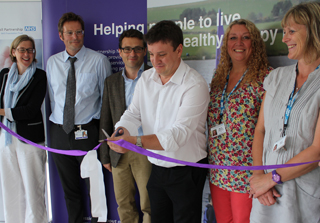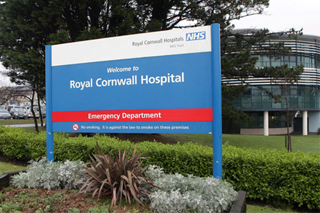High Quality Local Services Are As Essential As Ever
 I am always struck by the difference between a proposal on paper, and what it can mean in the real world. A rationalisation of bus services can sound reasonable when presented in a meeting room, however when it takes away your weekly shopping trip to Truro, or means your children have to walk miles on dangerous roads to school, it takes on a very different hue.
I am always struck by the difference between a proposal on paper, and what it can mean in the real world. A rationalisation of bus services can sound reasonable when presented in a meeting room, however when it takes away your weekly shopping trip to Truro, or means your children have to walk miles on dangerous roads to school, it takes on a very different hue.
A major part of my job is to inform the people making the decisions that affect our communities of the impact they will have. I am currently engaged in doing just this with Cornwall Council and Western Greyhound, following the latter’s decision to alter the 550/551 bus service so that it no longer passes through Portloe.
I am deeply concerned by this decision, and the impact it will have upon local residents. As the public meeting to discuss this issue was arranged for a day when I was required in Parliament I have instead written to each Portloe resident to ask for their thoughts as to how the changes will affect them. I have brought this testimony, which movingly talks of people being cut off from services and amenities important to them and of difficulties accessing work and school, together into an evidence dossier. I am very grateful to all the local residents who have got in touch to enable me to do this. It has been given to Cornwall Council transport team.
 It is important to remember that Cornwall Council does have an important role to play in resolving this issue. The Council is given taxpayers money from the Government to be spent subsidising vital bus routes which are not commercially viable for bus companies to operate. I know Cornwall Council officers have been working hard over the past year to ensure that this subsidy is spent as effectively as possible. It is important that they now recognise that the Portloe service really is a vital bus route that should be supported if necessary. Cornwall Council can also resolve another issue Western Greyhound raised to justify the service change; namely that congestion, much of it arising from builders vehicles brought to the village by development, made it difficult for their buses to pass through Portloe.
It is important to remember that Cornwall Council does have an important role to play in resolving this issue. The Council is given taxpayers money from the Government to be spent subsidising vital bus routes which are not commercially viable for bus companies to operate. I know Cornwall Council officers have been working hard over the past year to ensure that this subsidy is spent as effectively as possible. It is important that they now recognise that the Portloe service really is a vital bus route that should be supported if necessary. Cornwall Council can also resolve another issue Western Greyhound raised to justify the service change; namely that congestion, much of it arising from builders vehicles brought to the village by development, made it difficult for their buses to pass through Portloe.
I will continue to do all I can to find a solution that will secure a future bus service for Portloe. As I work on this Cornwall Council could provide real assistance by considering increasing support for the route and committing to tackling congestion in Portloe. I will keep on this case and hope to be able to report progress soon.
It is important to remember that while Cornwall Council has had a cut in the grant funding it receives from central government, it has new income generating opportunities and is spending very nearly as much this year on services as Council County Council and the six Districts did in 2007.
It is not true to say as Councillors too often do that they have no money and no choice. They are elected to make choices on how tax payers money is spent – this year this will be £506 of funding from central government for every person in Cornwall. Funding for other public services in Cornwall also very much remains in place, with the Government committing to increasing Cornwall’s NHS budget above inflation up until 2016.
 I am also keeping a wary eye on another set of proposals which could have an adverse impact on the ground. In the past rural GP practises have received additional funding from the Department of Health, known as the Minimum Practice Income Guarantee (MPIG), to help them deliver health services to a dispersed rural population. The Department have now decided that this additional funding should be absorbed into the main funding stream GPs practises receive, with the amount of money being calculated primarily according to patient demand.
I am also keeping a wary eye on another set of proposals which could have an adverse impact on the ground. In the past rural GP practises have received additional funding from the Department of Health, known as the Minimum Practice Income Guarantee (MPIG), to help them deliver health services to a dispersed rural population. The Department have now decided that this additional funding should be absorbed into the main funding stream GPs practises receive, with the amount of money being calculated primarily according to patient demand.
The team at Roseland Surgery, who do such a great job of looking after local people, are concerned that these reforms could mean that they lose out and may have to change the services they currently provide. I have taken up their concerns with NHS England who are responsible for allocating funding and have been assured that the practise will get the funds they need to meet patient demand, and that the pressure that the rural character of the Roseland will add to demand will be taken into account as funding calculations are made.
However warm words from NHS England can sometimes get lost somewhere alongside the A303 and I remain on the case. It is essential that Roseland Surgery has the support it needs to continue to offer accessible and high quality services to local people.
 Whilst working to protect local services under threat it is important to recognise that, in many areas, services are improving. Benefitting from £4 million of pupil premium funding for schools in the Truro and Falmouth constituency the Roseland’s schools are building on their already excellent reputations. I was particularly pleased to see an extra £325,000 granted to Roseland College this month by the Government, to help pay for a refurbishment of a number of key buildings.
Whilst working to protect local services under threat it is important to recognise that, in many areas, services are improving. Benefitting from £4 million of pupil premium funding for schools in the Truro and Falmouth constituency the Roseland’s schools are building on their already excellent reputations. I was particularly pleased to see an extra £325,000 granted to Roseland College this month by the Government, to help pay for a refurbishment of a number of key buildings.
The Royal Cornwall Hospital is recovering from the troubles that plagued it some years ago, with nine out ten patients now being willing to recommend it to family and friends. A £1.2 million grant from the grant has helped build a new A&E department at Treliske, and plans are afoot for new and improved maternity services. Likewise we now have a perinatal health service in Cornwall, and will soon have a specialist young person’s mental health unit, a project close to my heart. I have also been working hard to secure more frequent and more reliable train services and hope to be able to report good news on this score very soon.
This good progress overall in securing better services for local people makes the issues now affecting buses and Roseland Surgery all the more frustrating, and makes me even more determined to see them fixed.

